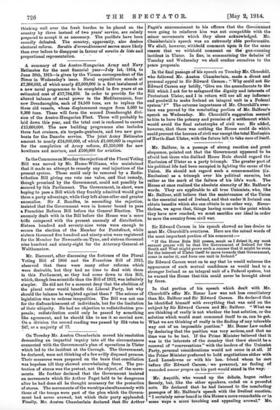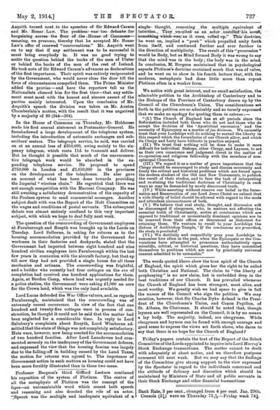Mr. Asquith, who wound up the debate, began rather fiercely,
but, like the other speakers, ended on a peaceful note. He declared that he had listened to the concluding passages of Mr. Balfour's speech with the liveliest emotion. "I certainly never heard in this House a more remarkable or in some ways a more touching and appealing avowaL" Mr. Asquith turned next- to the speeches of Sir Edward-Carson. and Mr. Bonar.-Law. The: problem, Wita. too. delicate- for- bargaining across- the finer of ,the ,House, of, Gammons— meaning, we presume, thereby that be accepted Mr. Boner Law's offer of renewed "conversations." Mr. Asquith went on to say that if any settlement was to be successful it must bring everybody in. It was no good trying to settle the question behind the backs of the men of Ulster or behind the backs of the men of the rest of Ireland. He took note of Sir Edward Carson's advances as declarations of the first importance. Their spirit was entirely reciprocated by the Government, who would never-close the door till the force of circumstances compelled them. The Prime Minister added the proviso—and here the reporters tell us the Nationalists cheered him for the first time—that any settle- ment must meet with the honest and sincere assent of the parties mainly interested. Upon the conclusion of Mr. Asquith's speech the division was taken on Mr. Austen Chamberlain's motion, with the result that it was negatived by a majority of 80 (344-264).















































 Previous page
Previous page